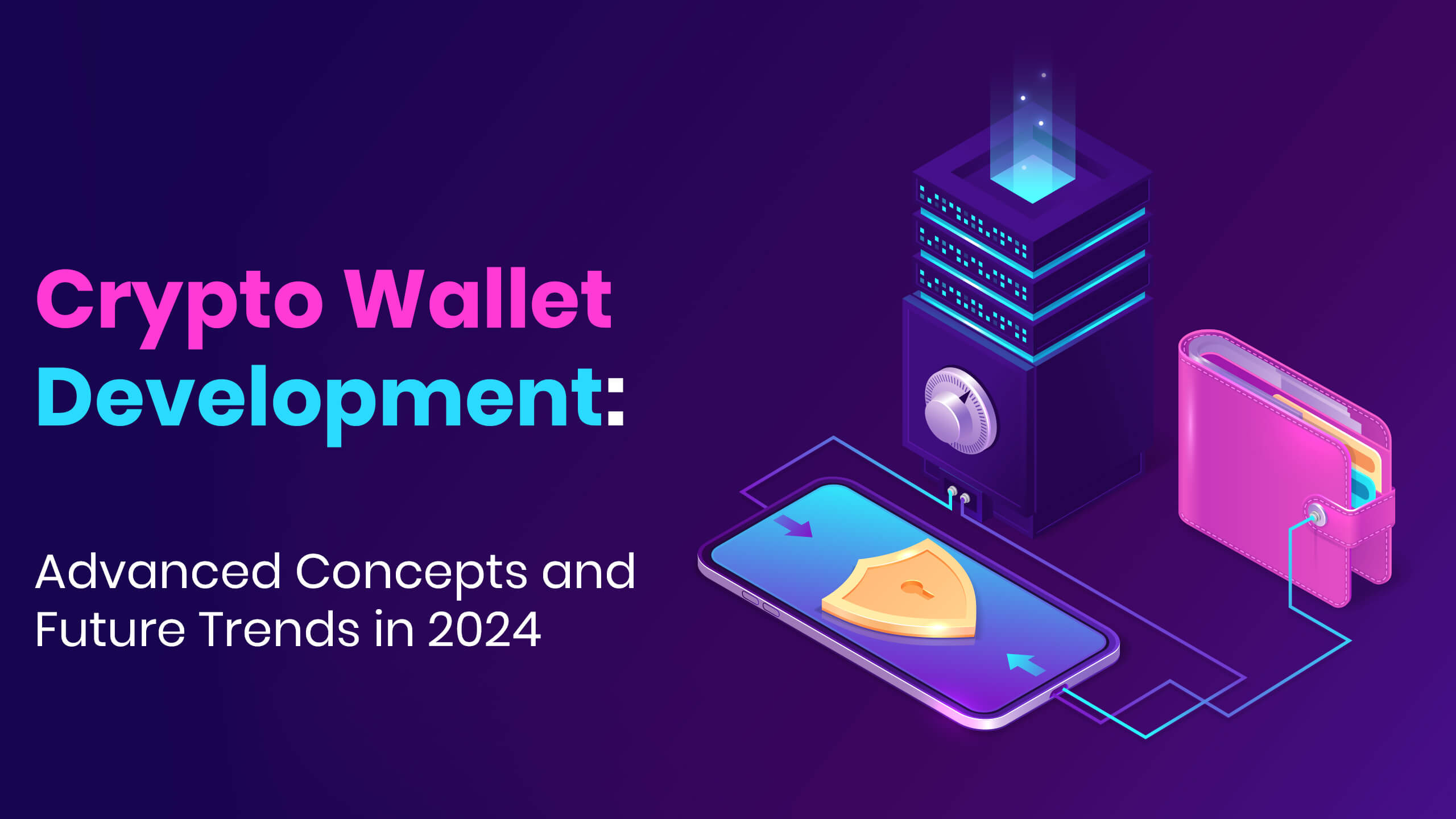Future Trends in Crypto Wallet Development
The crypto wallet landscape is constantly evolving, adapting to meet the needs of users and the ever-changing blockchain ecosystem. Here are some of the key trends shaping the future of crypto wallet development:
Integration of Decentralized Finance (DeFi) Features
DeFi, or decentralized finance, enables users to access financial services like lending, borrowing, and trading without relying on traditional financial institutions. As DeFi continues to gain traction, crypto wallets will increasingly integrate DeFi features, allowing users to manage their entire crypto experience within a single platform. This could include:
- Directly interacting with DeFi protocols: Users can connect their wallets to DeFi applications to participate in lending, borrowing, and liquidity pools without needing a separate exchange account.
- Staking and earning rewards: Crypto wallets can offer staking services, allowing users to earn interest on their holdings by locking them up in a DeFi protocol.
Interoperability Among Different Blockchain Networks
Currently, many crypto wallets operate on a specific blockchain network, limiting user interaction with other networks and their assets. However, the future is moving towards interoperable wallets that can seamlessly work across different blockchains. This will enable:
- Holding and managing assets from diverse blockchain networks: Users can hold Bitcoin on a Bitcoin network and Ethereum tokens on an Ethereum network, all within the same wallet.
- Cross-chain transactions: Users can send and receive cryptocurrency across different blockchains without needing to convert them first, simplifying transactions and increasing efficiency.
Emergence of Next-Generation Wallet Technologies
The constant evolution of technology is also impacting crypto wallets. Here are some potential future advancements:
- Hardware wallets with enhanced security: Hardware wallets offer a high level of security for storing private keys, but future iterations might integrate advanced features like biometric authentication or multi-factor authentication for even stronger protection.
- AI-powered wallets: Artificial intelligence (AI) can be used to personalize the user experience, recommend investment opportunities, and provide insights into crypto market trends.
- Self-sovereign identity wallets: These wallets allow users to control their personal data and digital identities, providing greater autonomy and security in the online world.
Case Studies: Success Stories in Crypto Wallet Development
The crypto wallet space is full of innovative projects pushing boundaries and shaping the industry. Here, we explore two exemplary projects with significant impacts:
1. MetaMask:
- Project: MetaMask is a popular non-custodial wallet, meaning users hold the private keys to their digital assets. It focuses on user-friendliness and accessibility, catering to both beginners and experienced users.
- Impact: MetaMask has been instrumental in driving the adoption of DeFi by allowing users to easily interact with DeFi protocols and manage their DeFi assets. It boasts a large user base and is widely considered a gateway to the DeFi ecosystem.
- Lessons Learned: The success of MetaMask highlights the importance of user experience and ease of use in attracting and retaining users in the crypto space.
2. Argent:
- Project: Argent is a mobile-first wallet that utilizes smart contracts to offer unique features like social recovery and shared custody. This allows users to recover lost funds or involve trusted individuals in managing their wallets.
- Impact: Argent focuses on innovative solutions to address security concerns and cater to specific user needs. Their social recovery feature provides a safety net for users who might lose their private keys.
- Lessons Learned: Argent demonstrates the potential of innovative features and security solutions to attract users and differentiate a wallet in a competitive market.
Ethical Considerations in Crypto Wallet Development
While the advancements in crypto wallets present exciting opportunities, it’s crucial to address the ethical considerations that come with them. Crypto wallet developers have a responsibility to ensure their products are used ethically and responsibly. Here are some key areas they should focus on:
Promoting Financial Inclusion and Accessibility
Crypto wallets have the potential to revolutionize financial access, especially for individuals in unbanked or underbanked regions. Developers should strive to:
- Create user-friendly interfaces: Complex interfaces can discourage users, creating a barrier to entry. Simplifying the user experience can make crypto wallets accessible to a broader audience.
- Offer educational resources: Educating users about cryptocurrencies, blockchain technology, and the risks involved is crucial for responsible participation.
- Support multiple languages and currencies: Catering to diverse users by offering support for various languages and currencies can promote greater financial inclusion.
Ethical Use of User Data and Privacy Protection
Crypto wallets hold sensitive user information, and developers must prioritize ethical data practices:
- Transparency in data collection and usage: Users should be informed about what data is collected, how it is used, and with whom it is shared.
- Robust security measures: Implementing strong security protocols to protect user data from theft, breaches, and unauthorized access is essential.
- Giving users control over their data: Users should have options to access, modify, and delete their data whenever they choose.
Summary: Key Takeaways from Crypto Wallet Development
The journey into the world of crypto wallets involves understanding not only their current functionalities but also the exciting future trends that are shaping their evolution.
- Future Trends: Look forward to seamless integration of DeFi features, interoperability across blockchains, and cutting-edge wallet technologies like AI-powered assistance and self-sovereign identity management.
- Case Studies: Learn from the success stories of user-friendly platforms like MetaMask that drive DeFi adoption and innovative solutions like Argent’s social recovery feature that address specific user needs.
- Ethical Considerations: Remember that developers hold a responsibility to promote financial inclusion through user-friendly interfaces, educational resources, and multilingual support. They must also prioritize ethical data practices, ensuring transparency, robust security, and user control over personal information.
Importance of Continual Learning and Adaptation in the Field
The crypto space is constantly evolving, and crypto wallets are at the forefront of this change. Staying updated on new developments, security best practices, and ethical considerations is crucial for users and developers alike. By embracing this spirit of continual learning and adaptation, we can navigate the exciting future of crypto wallets and ensure their responsible and accessible use for all.
Frequently Asked Questions (FAQs)
1. What are the primary features of a secure crypto wallet?
Secure crypto wallets prioritize three key features:
- Strong security measures: This includes using robust encryption algorithms, secure storage of private keys, and multi-factor authentication to prevent unauthorized access.
- Regular backups: Regularly backing up your wallet data ensures you can recover your funds even if you lose your device or experience a technical issue.
- Transparency and open-source code: Opting for wallets with open-source code allows for independent security audits and fosters trust in the platform’s security practices.
2. How can developers ensure compatibility across different blockchain networks?
Achieving perfect cross-chain compatibility remains an ongoing challenge, but developers have various approaches:
- Supporting multiple blockchain standards: Wallets can integrate with various standards like ERC-20 for Ethereum tokens or BEP-20 for Binance Smart Chain tokens, allowing users to hold and manage assets across different networks.
- Utilizing cross-chain bridges: These bridges enable users to transfer assets between different blockchains, expanding the range of supported networks within a single wallet.
- Implementing interoperable protocols: Developers can leverage emerging protocols like Cosmos IBC or Polkadot that facilitate seamless communication and asset transfer between blockchains.
It’s crucial to remember that each approach has its own advantages and limitations, and developers should carefully consider user needs and the evolving blockchain landscape when making compatibility decisions.
3. What role does user experience play in the success of a crypto wallet?
User experience (UX) plays a critical role in the success of a crypto wallet. Here’s why:
- Usability and ease of use: A user-friendly interface with clear navigation and intuitive features is essential for attracting and retaining users, especially beginners. Complex interfaces can be intimidating and discourage adoption.
- Security and trust: Users need to feel confident that their funds are safe and secure. This involves transparent security practices, clear communication, and a positive reputation.
- Accessibility and inclusivity: Catering to diverse users by offering multilingual support and educational resources can broaden the user base and promote financial inclusion.
By prioritizing a positive UX, crypto wallet developers can create user-friendly, secure, and accessible platforms that drive wider adoption and empower users to navigate the crypto space with confidence.
4. Is it possible to develop a crypto wallet without extensive programming knowledge?
Developing a fully functional and secure crypto wallet from scratch typically requires extensive programming knowledge and expertise in cryptography, blockchain technology, and security best practices.
However, there are alternative solutions for users who may not have coding experience:
- Custodial wallets: These are hosted wallets where users don’t hold the private keys, making them less complex to use but introducing a reliance on a third-party custodian.
- Hardware wallets: These physical devices offer a high level of security but require some technical knowledge to set up and use.
- Online wallet creation services: Some platforms offer user-friendly interfaces to create basic crypto wallets without requiring coding skills. It’s crucial to thoroughly research the reputation and security practices of such services before using them.
Remember, security is paramount when dealing with cryptocurrencies. Regardless of the chosen solution, prioritize platforms with strong security measures and conduct your own research to understand the associated risks.
5. How can businesses leverage crypto wallets to enhance their services?
Businesses can leverage crypto wallets in several ways to enhance their services:
- Expand customer reach: Accepting crypto payments attracts a wider customer base, particularly those comfortable with cryptocurrencies. It can also potentially reduce transaction fees compared to traditional methods.
- Boost customer engagement: Businesses can offer loyalty programs and rewards using crypto tokens, fostering brand loyalty and building a community around their products or services.
- Streamline transactions: Crypto wallets facilitate secure and transparent transactions by eliminating intermediaries and providing a tamper-proof record of ownership. This can improve efficiency and potentially reduce costs.
- Enable new business models: Crypto wallets, coupled with blockchain technology, open doors to innovative models like fractional ownership of assets or decentralized marketplaces, expanding business opportunities.
It’s important to carefully consider the regulatory landscape, security risks, and target audience before integrating crypto wallets into business operations.





